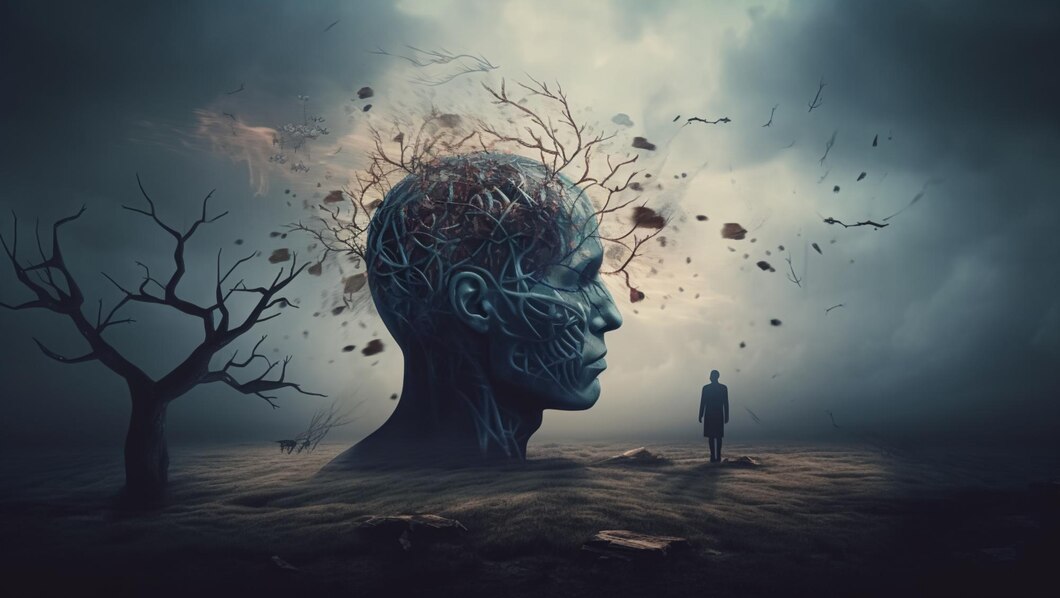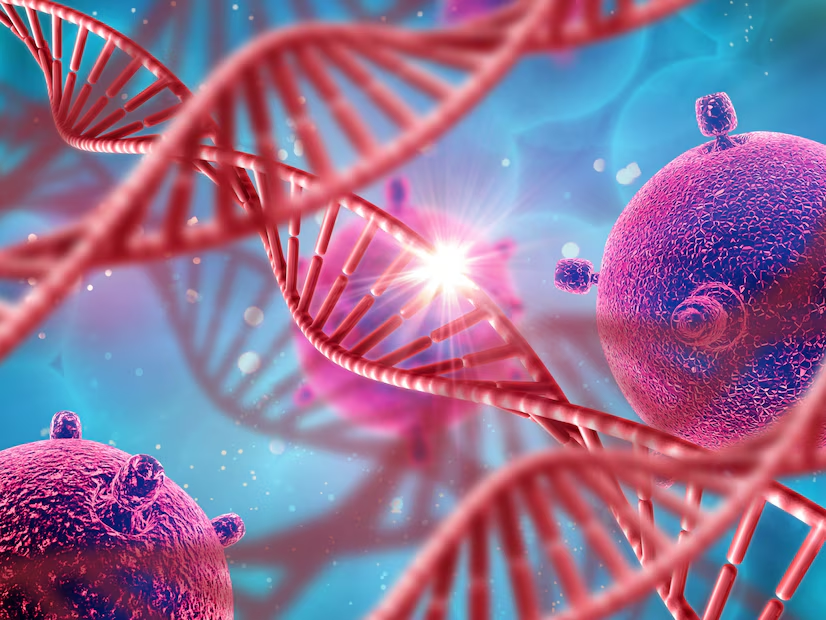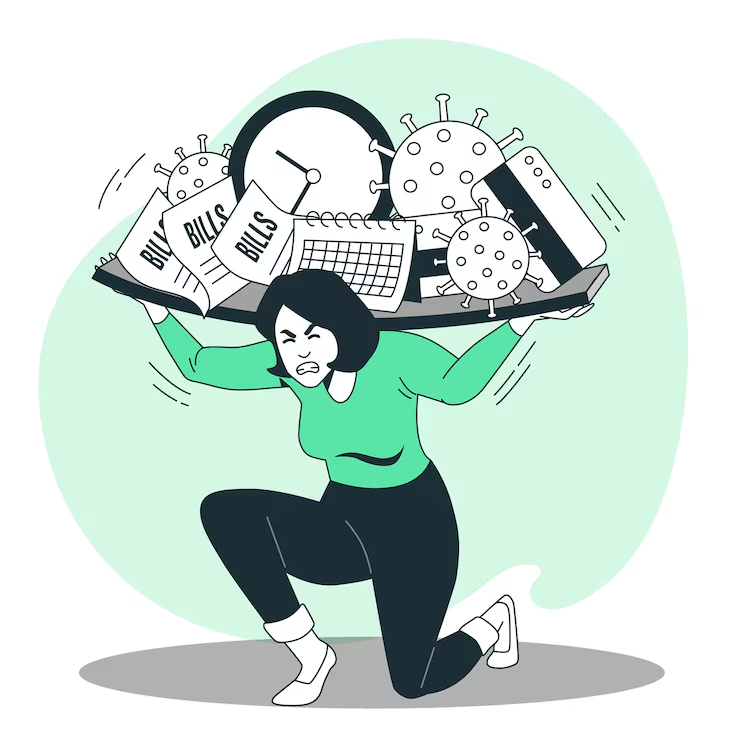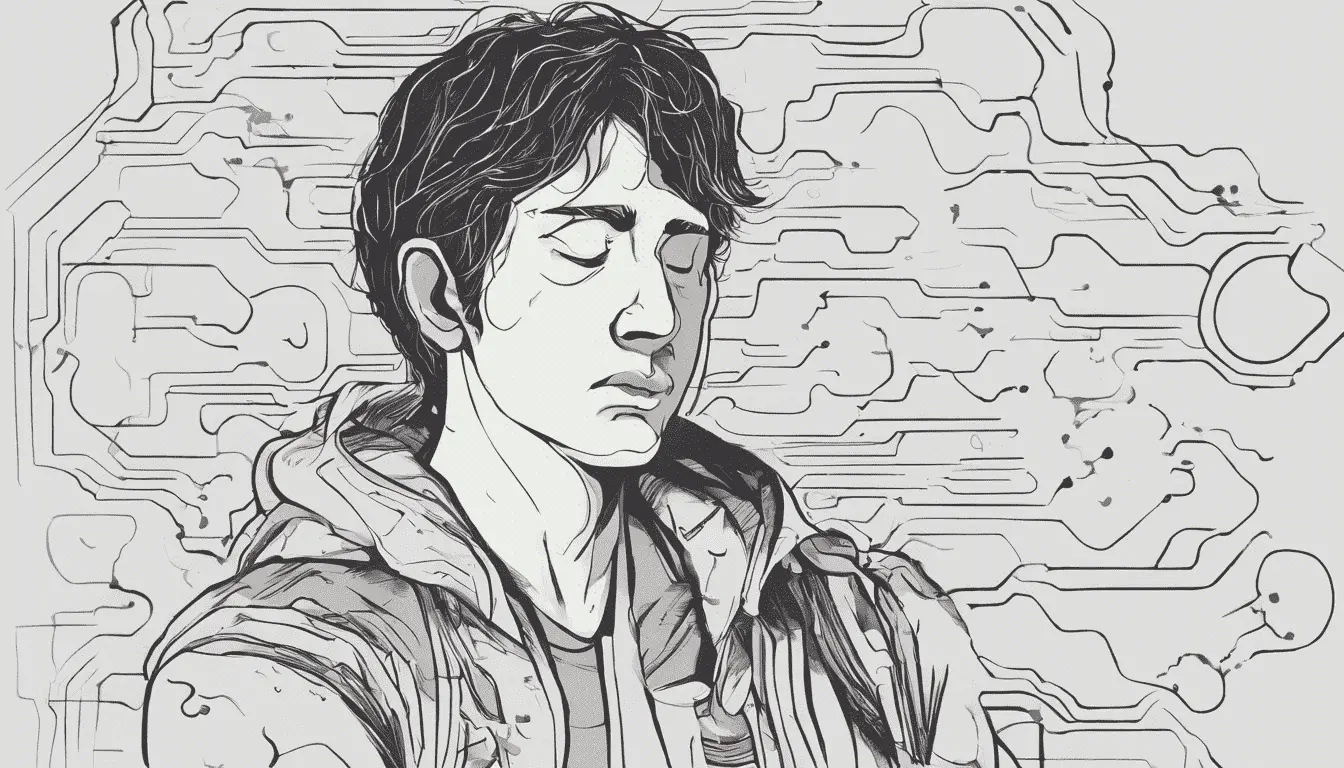Navigating the complexities of our emotions can often leave us confused about whether we're just feeling a temporary bout of sadness or grappling with something deeper like depression. In today's world, where mental health awareness is more crucial than ever, understanding the distinctions between these emotional states is fundamental. For many of us, deciphering our feelings isn't always straightforward, especially when stress and other factors muddy the water. Recognizing when sadness transitions into depression is vital not only for our emotional well-being but also for seeking timely help and support.
In this article, we delve into what defines depression and how it differs from the occasional sadness everyone experiences. We'll explore common causes that lead to feeling depressed, the various types of depression that exist, and the significance of distinguishing between them. Furthermore, we intend to provide effective coping strategies, highlighting the role of therapy, exercise, gratitude, and mindfulness in managing depression. Our goal is to equip you with the knowledge and tools to navigate these emotions, emphasizing that while the journey may be challenging, support and solutions are available to guide us toward better mental health.

Understanding Depression
What is Depression?
We often hear the term "depression" used in daily conversations, but it's crucial to understand what it truly means. Depression is more than just feeling sad or going through a rough patch; it's a serious mental health condition that affects how a person feels, thinks, and handles daily activities. This condition, also known as major depressive disorder or clinical depression, can lead to a range of emotional and physical problems. Unlike the occasional blues, depression is persistent and can significantly interfere with a person’s ability to function.
Common Symptoms of Depression
- Persistent Sadness or Hopelessness: A hallmark of depression is feeling sad, empty, or hopeless most of the time.
- Loss of Interest: Activities that once brought joy may no longer seem appealing.
- Sleep Disturbances: This could include difficulty falling asleep, staying asleep, or sleeping too much.
- Changes in Appetite: Significant weight loss or gain unrelated to dieting.
- Fatigue: Feeling tired nearly every day, even without physical exertion.
- Difficulty Concentrating: Trouble focusing, making decisions, or remembering.
- Physical Symptoms: Experiencing unexplained aches, pains, headaches, or digestive problems.
- Thoughts of Death or Suicide: Frequent thoughts about death, suicidal ideation, or suicide attempts.
It's important to note that symptoms can vary from person to person, and not everyone will experience all these symptoms. However, if several of these symptoms are present nearly every day for at least two weeks, it may indicate depression.

Depression vs Sadness
| Aspect | Depression | Sadness |
|---|---|---|
| Duration | Lasts more than two weeks and is persistent. | Usually temporary and linked to a specific situation. |
| Impact on Daily Life | Interferes significantly with daily functioning. | Does not typically hinder one’s ability to function. |
| Feelings | Can include feelings of worthlessness, excessive guilt, and hopelessness. | Generally does not involve prolonged feelings of worthlessness or guilt. |
| Physical Symptoms | Can include significant changes in appetite, sleep, and energy levels. | Less likely to have a profound physical impact. |
| Thoughts of Suicide | May include thoughts of death or suicide. | Rarely associated with thoughts of death or suicide. |
Understanding the difference between depression and sadness is critical. While sadness is a normal emotion that we all experience in response to disappointing or difficult situations, it typically resolves on its own and doesn't severely impact our ability to live our lives. Depression, on the other hand, is an overpowering and ongoing mental health disorder that requires treatment. It's vital to seek help if you or someone you know is experiencing symptoms of depression. Remember, depression is treatable, and there is hope for those who are struggling.

Common Causes of Depression
Depression is a complex condition with multiple factors contributing to its onset. Understanding these factors can help in recognizing the signs early and seeking appropriate help. Let’s delve into some of the common causes of depression, ranging from genetic predispositions to the impact of certain life events and hormonal changes.
Genetics and Family History
Research indicates that genetics play a significant role in the development of depression. If you have a close family member who has experienced depression, such as a parent or sibling, your risk of developing the condition increases. This is because the likelihood of encountering severe depression may be influenced by the genes inherited from your parents. However, it's crucial to remember that depression is often the result of a combination of genetic, environmental, and personal factors, meaning a family history does not guarantee that you will experience depression.
Life Events and Stress
Stressful life events, whether they're anticipated or completely unexpected, can significantly heighten the risk of developing depression. Events such as the loss of a loved one, a difficult breakup, or job loss can trigger intense feelings of sadness and despair. Moreover, the way stress affects individuals varies over time. Initial episodes of depression might sensitize an individual to future stress, making them more susceptible to depression with less provocation. Early adverse experiences, like emotional abuse, can also increase sensitivity to stress later in life, potentially leading to depression.
Hormonal Changes
Hormonal fluctuations are another crucial factor that can lead to depression, especially in women. From puberty to menopause, women experience various periods of hormonal changes that can affect their mood and overall mental health. Conditions like postnatal depression and premenstrual dysphoric disorder (PMDD) are linked to significant hormonal shifts. Even in men, changes in hormones such as testosterone levels can influence mood and lead to depression. It's essential to understand that while hormonal changes can trigger depression, they usually work in tandem with other factors.
Certain Illnesses and Medications
Depression can also be a side effect of certain medical conditions and the medications used to treat them. Chronic illnesses like heart disease, cancer, and chronic pain conditions can increase the risk of developing depression. Moreover, some medications prescribed for acne, high blood pressure, and even contraceptives have been found to sometimes cause depression. It's important to always discuss potential side effects with your healthcare provider and report any changes in mood when starting new medications.
Understanding the common causes of depression is the first step towards recognizing it in ourselves or someone we care about. While the journey through depression can be challenging, recognizing the signs early and seeking help can lead to effective management and recovery.

Types of Depression
Depression manifests in various forms, each with unique symptoms and triggers. Understanding these types is crucial for recognizing and seeking appropriate help. Let's explore the major categories.
Major Depression
Often referred to as "major depressive disorder," this type is characterized by a pervasive feeling of sadness or a lack of interest in previously enjoyed activities. It's more than just feeling down; it's a significant condition that affects daily functioning. Symptoms include changes in sleep patterns, appetite, and energy levels, among others. If you find yourself feeling depressed most days of the week, it might be time to consult a healthcare provider.
Seasonal Affective Disorder (SAD)
SAD is a type of depression that typically occurs during the winter months when there is less natural sunlight. It's not just the "winter blues"; it's a subtype of major depression that comes and goes with the seasons. Symptoms might include oversleeping, overeating, and a heavy feeling in the arms or legs. Light therapy and antidepressants are common treatments for SAD, helping to alleviate the symptoms by mimicking natural sunlight and balancing brain chemicals.
Persistent Depressive Disorder (PDD)
Also known as dysthymia, PDD represents a milder, but more chronic form of depression. If you've been experiencing a depressed mood for most of the day, for more days than not, for at least two years, you might be dealing with PDD. It can significantly impact one's quality of life, making it hard to be happy even on typically joyous occasions. Treatment often involves a combination of medication and talk therapy.
Postpartum Depression
This type of depression occurs in the weeks and months following childbirth. It can affect both new mothers and fathers, contrary to the common belief that only women experience it. Symptoms may include severe mood swings, exhaustion, and a lack of interest in the baby. It's a serious condition that requires attention and treatment, which may include counseling and medication.
Other Types
Depression can also present in other forms, such as psychotic depression where individuals may experience delusions or hallucinations, or melancholia, a severe form of depression with physical symptoms. It's important to recognize that depression is a complex disorder that can manifest differently in each individual.
Understanding the various types of depression is the first step towards seeking help and managing symptoms. If you or someone you know is struggling, it's important to reach out to a healthcare provider for a proper diagnosis and treatment plan. Remember, depression is treatable, and there is hope for recovery.

Coping Strategies for Depression
Feeling depressed can be overwhelming, making it hard to know where to start when it comes to coping. However, there are several strategies that can help manage depression, improve your mood, and increase your overall well-being. Here's how to cope with depression, broken down into actionable steps.
Stay Connected with Others
When we're feeling down, it's tempting to withdraw from social interactions. However, staying in touch with friends, family, and even coworkers can significantly boost your mood. Simple actions like meeting for coffee, going for walks, or just sending a quick text can remind you that you're valued and loved. Social connections provide emotional support, reduce feelings of loneliness, and make it easier to ask for help when needed. It's important to push through feelings of vulnerability and make an effort to maintain or establish new connections.
Engage in Physical Activity
Exercise isn't just good for your physical health; it has profound benefits for your mental health as well. Regular physical activity releases endorphins, which are natural mood lifters. It can also serve as a distraction, allowing you to find some relief from negative thoughts. Whether it's a brisk walk, yoga, or a team sport, find an activity you enjoy and aim for at least 150 minutes of moderate exercise per week. Remember, any amount of exercise is better than none, and it's crucial to find activities that you look forward to doing.
Face Your Fears
Avoiding situations that make you anxious can worsen feelings of depression over time. Facing your fears, even in small, manageable steps, can reduce anxiety and boost your confidence. Start by setting achievable goals for confronting these fears. Whether it's speaking in public or simply going out more often, each step forward is a victory against depression.
Maintain a Healthy Diet and Routine
What you eat and how you structure your day can impact your mood. Strive for a balanced diet rich in fruits, vegetables, whole grains, and lean proteins to support brain health. Avoid excessive sugar and caffeine, which can lead to mood swings. Establishing a regular routine, especially for sleep and meals, can also provide a sense of stability and control, which is often lacking when you're depressed.
Seek Professional Help When Needed
Depression can be a complex condition that sometimes requires professional intervention. If you're experiencing persistent sadness, changes in sleep or appetite, or thoughts of self-harm, it's crucial to seek help. Treatments like therapy, medication, or a combination of both can offer relief. Don't hesitate to reach out to a mental health professional who can guide you through the process of finding the right treatment plan.
Coping with depression involves a combination of social support, physical activity, facing fears, maintaining a healthy lifestyle, and seeking professional help when necessary. Each of these strategies can play a pivotal role in managing depression and improving your quality of life. Remember, it's okay to ask for help, and taking steps towards coping is a sign of strength, not weakness.

Conclusion
Understanding the nuanced differences between sadness and depression, as detailed throughout this article, empowers us with the awareness necessary to navigate our own emotional landscapes and those of people around us. The thorough examination of depression's symptoms, causes, types, and coping strategies not only demystifies this complex condition but also underscores the critical importance of distinguishing it from transient sadness. This knowledge equips us to seek appropriate support and interventions, ensuring that individuals grappling with depression can embark on a path toward recovery with the right tools and understanding in hand.
The journey through recognizing and managing depression, as outlined, highlights the pivotal role of community, professional help, and personal resilience. It's a testament to the fact that while depression is a formidable adversary, it's one that can be confronted with informed strategies, compassionate support, and persistent efforts toward mental wellness. By fostering a broader comprehension of this condition, we set the stage for more effective coping mechanisms, encourage dialogue around mental health, and pave the way for healing and hope for those affected.
FAQs
How do I differentiate between major depression and just feeling sad?
It's quite common to experience moments of sadness, grief, or low energy. However, major depression is distinct from these temporary emotional states. If you find yourself losing interest in activities you previously enjoyed, withdrawing from family and friends, and experiencing prolonged feelings of hopelessness, these could be signs of major depression.




